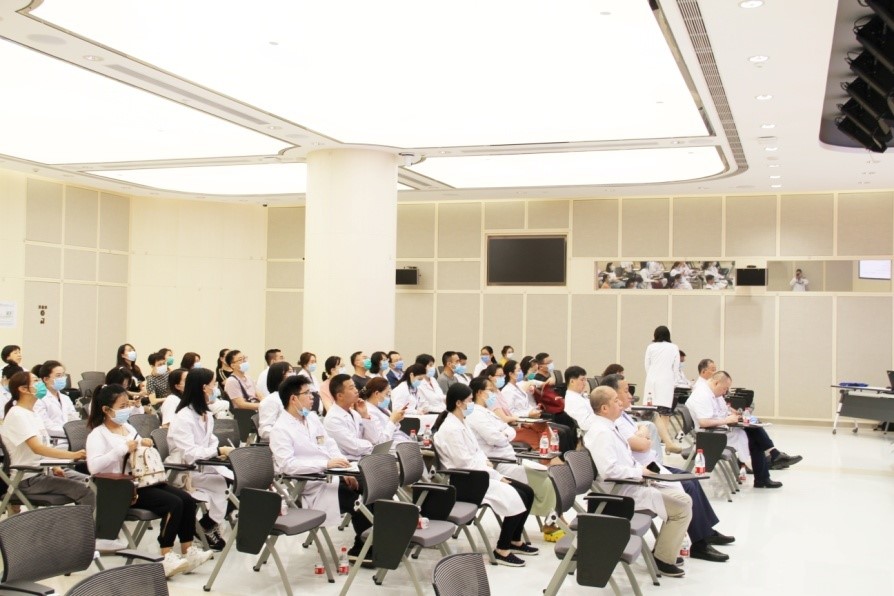Recently, a workshop themed “standardized processing procedures and AI-assisted diagnosis of ESD (endoscopic submucosal dissection) specimens” was jointly hosted by the Medical Technology Committee and Department of Pathology of PUMCH, which is one of the series of academic events hosted by the Medical Technology Committee and also one of the “PUMCH Centenary” series of technical seminars hosted by the Department of Pathology. Turnout of this training workshop approaches 100.
ESD has become a new and preferred treatment method for early cancers and precancerous lesions of the digestive tract. Comprehensive and accurate post-ESD pathological examination results are critical for guiding postoperative treatment, and the standardized pre-processing and histological processing of ESD specimens is the foundation and prerequisite for producing standardized pathology reports. This approach requires the cooperation between the departments of pathology and gastroenterology.
Starting from the first ESD procedure, an ESD team established by the Department of Pathology of PUMCH has been in place. The team members process all ESD specimens, sign off on and issue reports to ensure the standardization of specimen processing. Through years of exploration and improvement, the team has established a set of standardized procedures covering many aspects including gross photography, specimen grossing, grouped embedding, diagnosis, and digital slide archiving, ensuring the integrity of relevant data of each specimen. Attending Technician Xue Xiaowei, Associate Professor You Yan, Professor Chang Xiaoyan and Associate Professor Li Yuan from the digestive sub-specialty team under the Department of Pathology delivered speeches themed “principles of ESD specimen pre-processing and embedding”, “standardized approaches to ESD specimen grossing and reporting”, “pathological diagnosis of gastric mucosal epithelial tumors” and “AI-assisted diagnosis of ESD specimens”, putting on full display the substantial work and sophisticated experience of the digestive sub-specialty team in specimen pre-processing, grossing, embedding and histology slide preparation, microscopic interpretation and AI-assisted diagnosis, etc.
To classify the lesions and ensure the effectiveness of the procedure, an accurate and standardized pathology report is desired after ESD. The Department of Pathology of PUMCH, in cooperation with relevant companies, has developed an AI-based diagnosis system for early gastric cancers to aid the pathological assessment of ESD specimens. The system can speed up the workflow of physicians, reduce their workload and improve the accuracy of image recovery and also assist pathologists in their diagnostic work, making pathological diagnosis more accurate and ensuring the accuracy and effectiveness of individualized treatment.
In this training session, Professor Zhou Weixun demonstrated the application of the AI-based ESD specimen diagnosis system and addressed issues of interest to the audience such as “measuring the depth of invasion of early-stage cancers”, “labeling ESD specimens”, and “the extent of AI application”.

The lecture co-hosted by the Medical Technology Committee and the Department of Pathology, one of the series of events hosted by them
Reporter: Gan Dingzhu
Correspondent: Xue Xiaowei
Photo: Department of Pathology
Editor: Lu Junliang
